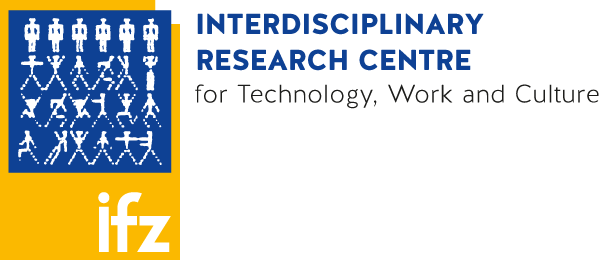Putting responsible research and innovation into practice: livable cities, academic kindness, sustainable food and fair AI
16.05.2022
IFZ was co-hosting the annual conference on ”Critical Issues in Science, Technology and Society Studies” (May 2-4) in 2022 in Graz with Günter Getzinger, Michaela Jahrbacher, Franziska Häller and colleagues from TU Graz again. IFZ researchers gave several presentations and organized sessions with international cooperation partners to showcase their diverse portfolio on responsible research and innovation (RRI) in practice.

- The session "Transforming organizations for responsible research and innovation" organized by Sandra Karner (IFZ) and Zoltan Bajmocy (University of Szeged), discussed which forms of institutional and organizational change would be required for a transformation of the research and innovation system towards RRI. A central point of discussion was whether and how RRI can open up in research organizations as well as in research-funding institutions an opportunity to critically question and change the currently prevailing internal logics and practices through ethical and political reflections.
- Anita Thaler (IFZ) gave an example for such an ethically reflexive, gender-sensitive technology research project, with her talk about „A techno-feminist take on tele-rehabilitation“, which can in the long run actually save lives.
- A session on „The Smart Urban Last Mile Logistics – Funded Fantasy or Pathway to liveable cities?” (Jürgen Suschek-Berger, Günther Illek, Melanie Troppe, IFZ) discussed the way to more sustainable and liveable cities, the field of logistics plays a vital role: The more people living in the cities, the higher the demand for goods. Logistics is the tool necessary to fulfil these needs, the enabler of business activities, the upkeep of our supply chains. But also, logistics has quite some impact on our environment, the liveability in the cities and the safety on our streets. In this session eight presenters talked about their approaches, their research and their results in the fields of sustainable last mile logistics.
- In “challenges of upcoming mobility systems”, Anna Schreuer presented findings from her research at the University of Graz on ways to reduce lock-in to frequent flying in academia. Furthermore, she was happy to chair a session on solar energy in the global south as well as a session on decentralisation, user orientation, and local engagement in energy system transformations.
- Another session convened by David Steinwender (IFZ) and Sandra Karner dealt with the topic of food justice. Different perspectives on a fair and sustainable food system - from the global to the local scale - were presented:
- the conflict between traditional and commercial seed systems in China and Latin America,
- the perspective of sufficiency regarding milk and meat in China,
- the significance and value of self-produced food comparing China and Europe,
- the potential of persona based regional food baskets,
- learnings from edible city initiatives in Dresden,
- valuation of sustainability services in agriculture in Freiburg,
- a rural queer (dis)empowerment perspective on community-supported agriculture and food hubs as sites for food system transformation in the UK.
- The IFZ team contributed with a presentation on two ongoing projects (CoopsForFood and Climate-friendly local supply in the Triester district) about a fair and sustainable food supply system in the Triester neighbourhood in Graz.
- Julian Anslinger (IFZ), Jaroslava Huber (Pro2Future), Susanne Sackl-Sharif (University of Graz) and René Werner (Johannes Kepler University Linz) gave talks on how current digitalisation measures and artificial intelligence affect employees. They agreed: The situation for workers is demanding. But there are measures to improve it (training, user-centred technology, etc.). Companies just need to dedicate the necessary resources.
- Daniela Jauk-Ajamie (University of Akron) and Anita Thaler (IFZ Graz) – both members of the working group Queer STS – invited five contributors in their session to explore forms of ‘academic kindness’ as antidote to academic precarity and competitiveness in a neoliberal context, as queer-feminist intervention in contemporary working cultures, as actualization of a feminist ethics of care, as an academic mutual aid strategy, and as interaction and intra-action. Andrea Ploder explored how “Strong Reflexivity and Academic Kindness” are both rooted in vulnerability. Victoria Englmaier emphasized the importance of “Visions of a gender- and queer-inclusive university in Austria”. Kris de Welde adviced to not overlook the social justice issue of the concept in her talk “Minding and Mending the Gap between Academic Kindness and Academic Justice”. Finally Eveline Wandl-Vogt and Claudia Schwarz-Plaschg provided food for thoughts about “diversity friendly knowledge creation spaces” and experiences from a “peer-to-peer feminist STS collective” resulting in a fruitful fish bowl discussion with the audience.
